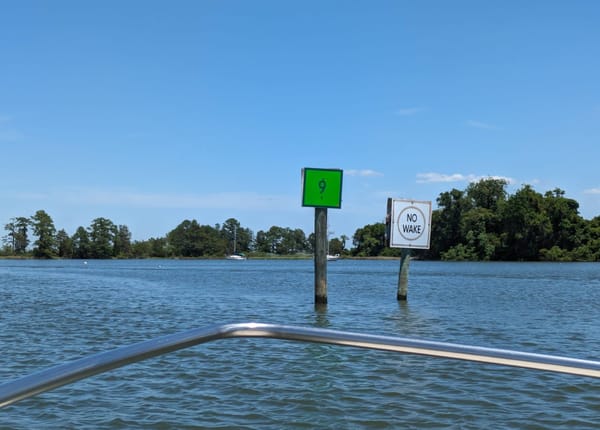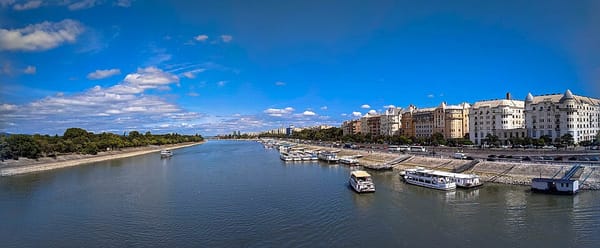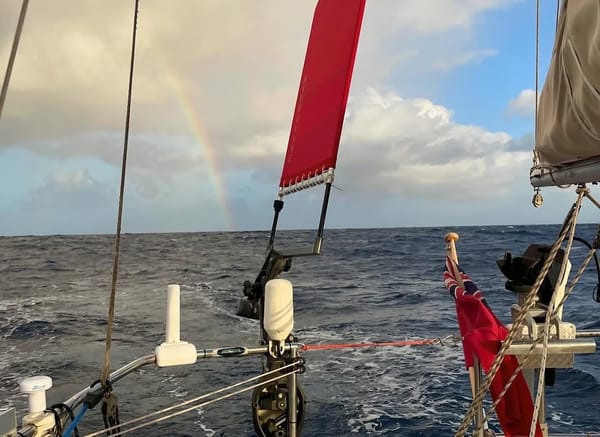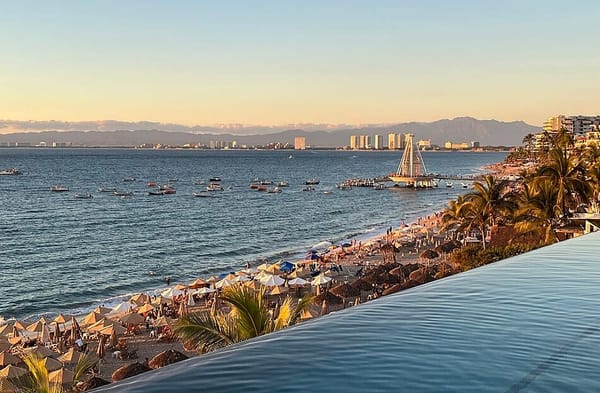Helpful Tips to Keep Your Boat Trailer in Tip-Top Shape
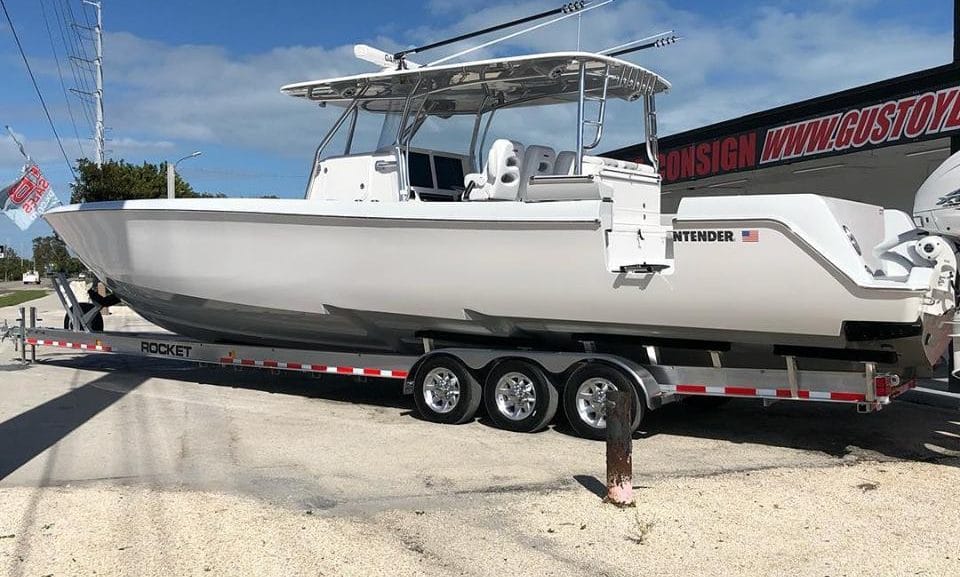
Road safety is just as important as water safety when it comes to boats. Unless you keep your boat in-water at a boat dock for rent, you’re going to need to trailer it to and from the boat ramp. And even if you have the perfect private boat slip rental, you never know when you might need (or want) to trailer it somewhere else. That’s when it’s nice to have a well-maintained boat trailer that you can just hook up and go (no extra repairs or purchases needed).
Your boat trailer plays a crucial part in towing and boating experience. Don’t let trailer troubles like low tire pressure, burnt-out bulbs and rusty bearings delay your day out on the water. These things can also be a safety hazard on the road and launching/retrieving at the dock.
Keep reading to check out our tips for keeping your boat trailer in tip-top shape.
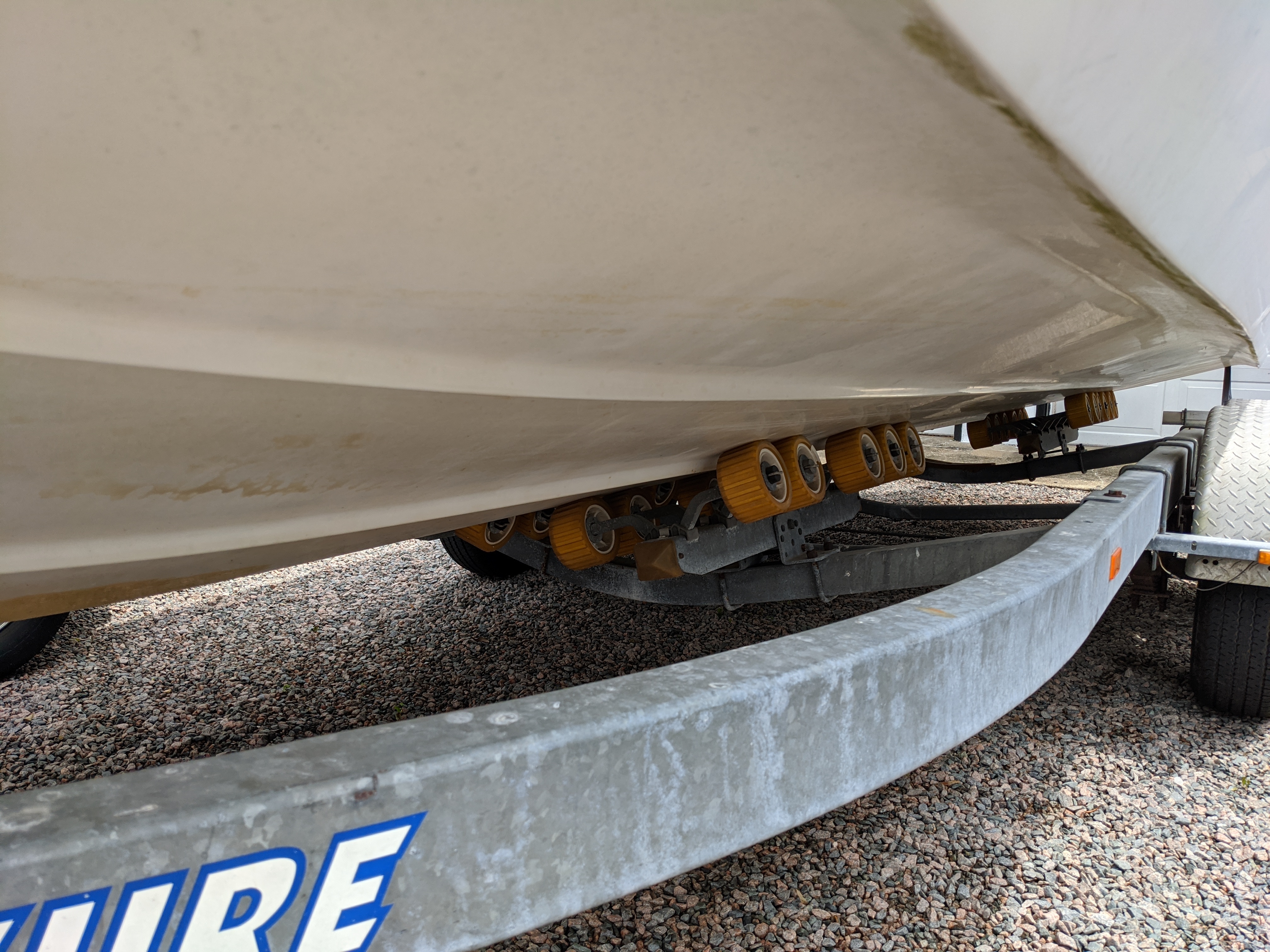
Parts on a Boat Trailer that Need Maintenance
- Brakes
- Tires, Wheels and Axle
- Lights and Electrical Connections
- Bunks and Rollers
- Safety Chains and Straps
Boat Trailer Brakes
Brakes are important (we all know that, but it never hurts to bring it up once in a while). There are two types of boat trailer brakes: the disc-type has brake pads and the drum-type has brake shoes. They can both get worn down with regular use, so inspections are necessary at least every season. Some very light trailers might not have brakes, but most do. A trailer that’s transporting anything larger than a kayak (and maybe even a kayak) really needs to have brakes in our opinion.
Quick Boat Trailer Brake Tips
- Rinse the brakes after use, especially in saltwater
- Check brake lines for rust
- Check the brake fluid in the master cylinder periodically during the season
- Lubricate the trailer coupler assembly (the part that goes over the hitch ball) and the tongue jack
Tires and Wheels
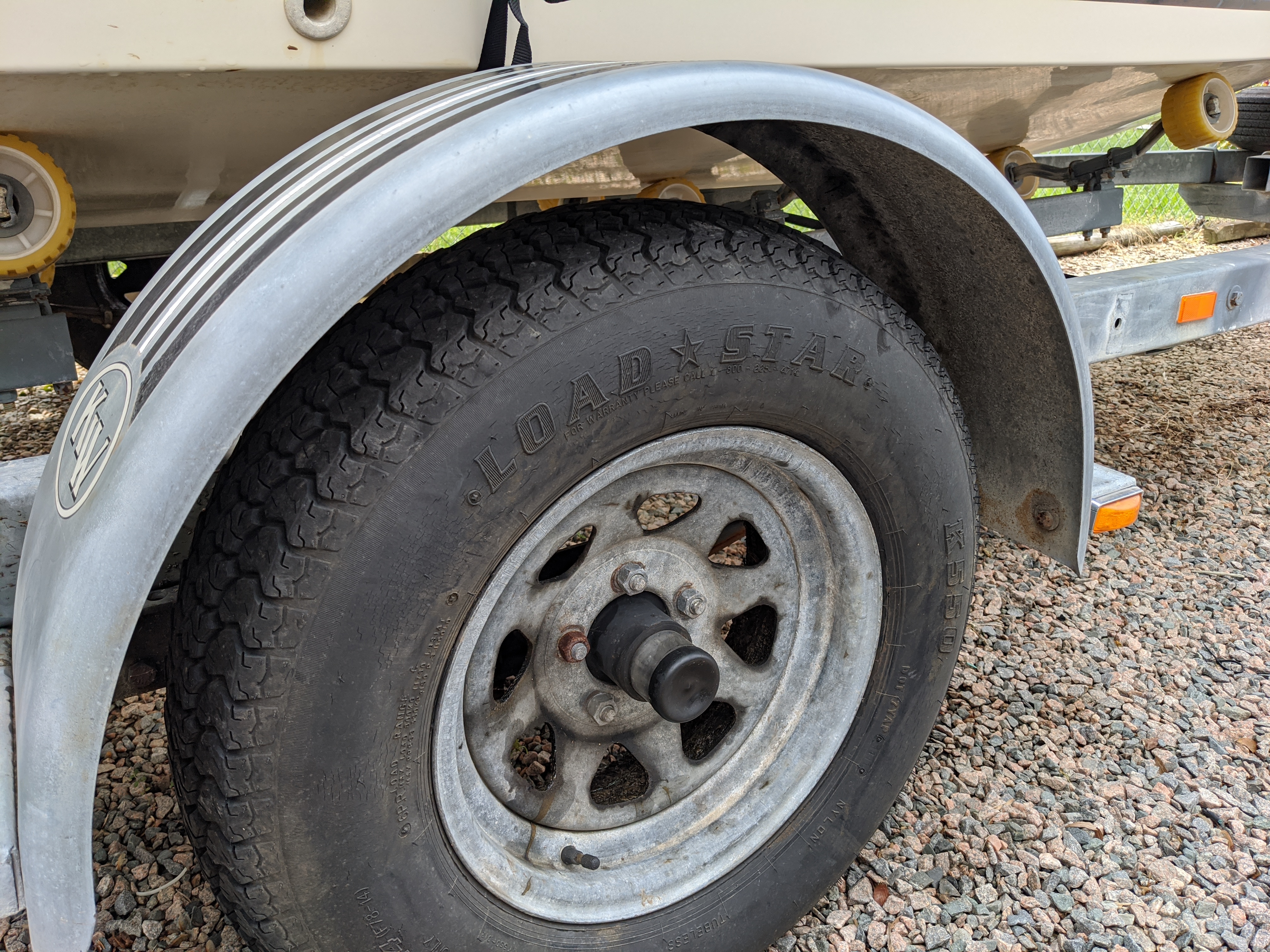
Photo: Sandy Allen
You can’t just use any old tire you find on a boat trailer. All boat trailer tires should be Special Trailer (ST) tires. They’re designed specifically for trailers. Boat trailer tires come in two types: bias-ply tires (less expensive, good for short trips and stiffer, which helps with trailer sway) and radial tires (more expensive, but run cooler for longer trips, have better load capacity, longer tread life and provide less road noise).
Tires can blow out due to low pressure, so it’s best to keep them inflated to the maximum rating. Tires can naturally lose a few pounds of air pressure, so be sure to always check the tires after the trailer has been sitting for a while (especially over the winter).
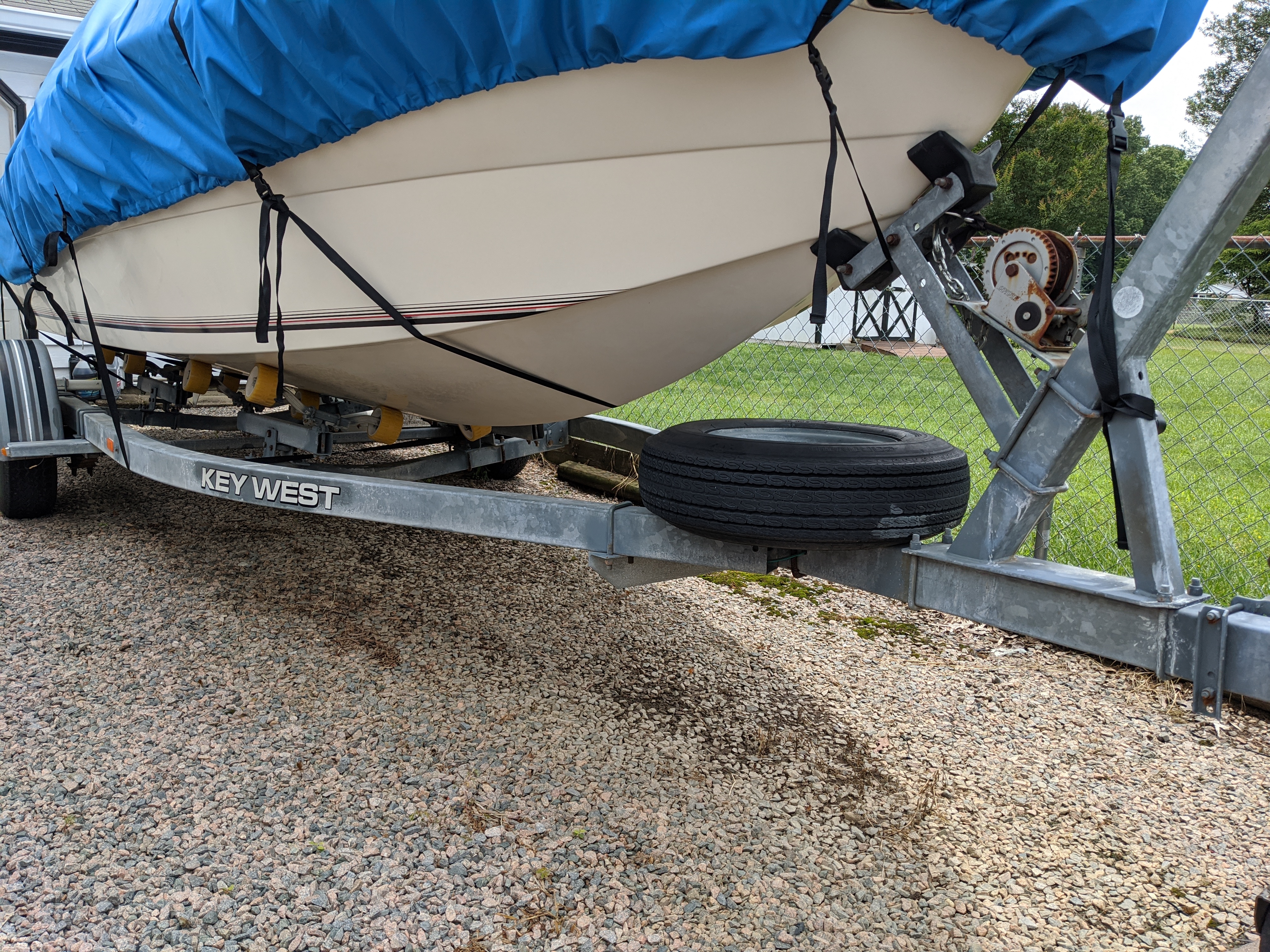
Since water is a given, you’ll want to regularly check for rust on the wheel bearings, which serve as a protective measure. According to GEICO/BoatUS, nearly one out of every four trailers broken down on the side of the road is due to bad bearings. If you’re handy with tools, you can probably tackle this project yourself. If not, that’s what boat dealers and shops are for.
Signs of bad bearings include:
- Feeling hot to the touch
- Hearing noises when spinning the wheel while the trailer is jacked up
- Grease on the boat bottom near the wheel
- Dust cover suddenly comes off (this is due to excessive heat and pressure build-up)
Quick Tire Tips
- Check tire pressure before heading out
- Check the tread for wear and cracks in the rubber
- If a tire is wearing unevenly, it could mean that an axle is bent or out of alignment
- Replace tires that are more than six years old
- If you hear squeaking noises, it’s probably time to replace the wheel bearings
- Have a spare and keep tools and a jack in the vehicle (just in case Murphy’s Law comes to visit)
Lights and Electrical Connections
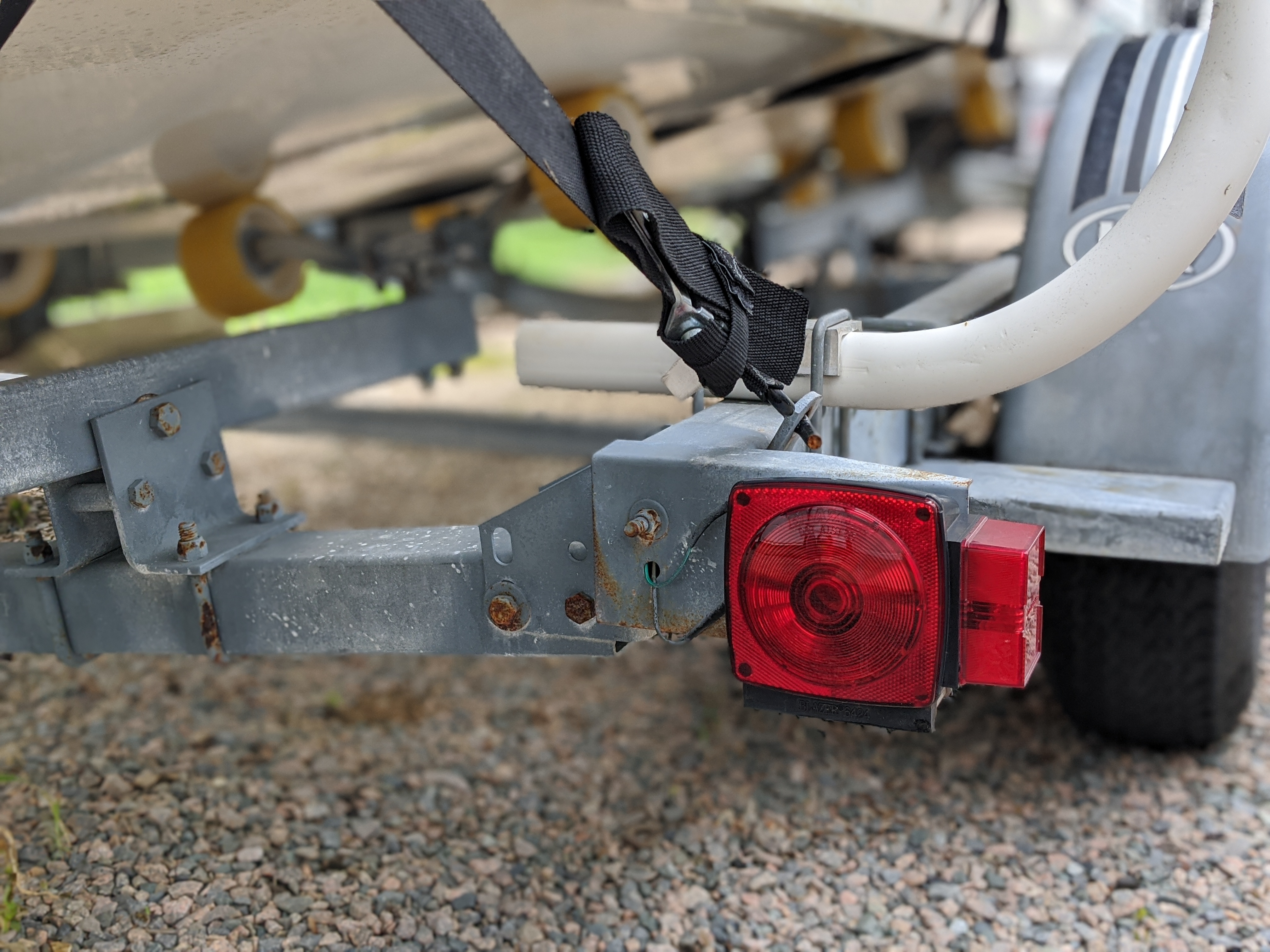
Lights should be inspected every time you take the trailer out, even during the day (you never know when the fishing will be phenomenal and you end up coming home after dark). If you don’t have LED lights, incandescent bulbs need to be replaced as they will burn out.
Quick Boat Trailer Light Tips
- Stow some spare bulbs in the boat and vehicle (Murphy’s Law again)
- Keep the trailer light connection covered when not in use to prevent corrosion
Additionally, you’ll want to periodically check the bunks, rollers, winch, jack stand and safety chains and straps for rust, tears, cracks and other problems. On-land boat storage rentals and trailer parking spots make good places to inspect these things.
Hopefully you’ve gathered some tips to keep your boat trailer in tip-top shape (and your mind stress-free). A little proactive planning and maintenance will make sure you’re on the way to the lake rather than sitting in the driveway or waiting at the boat lift for rent with a flat tire or burnt-out taillights. See you on the water!
